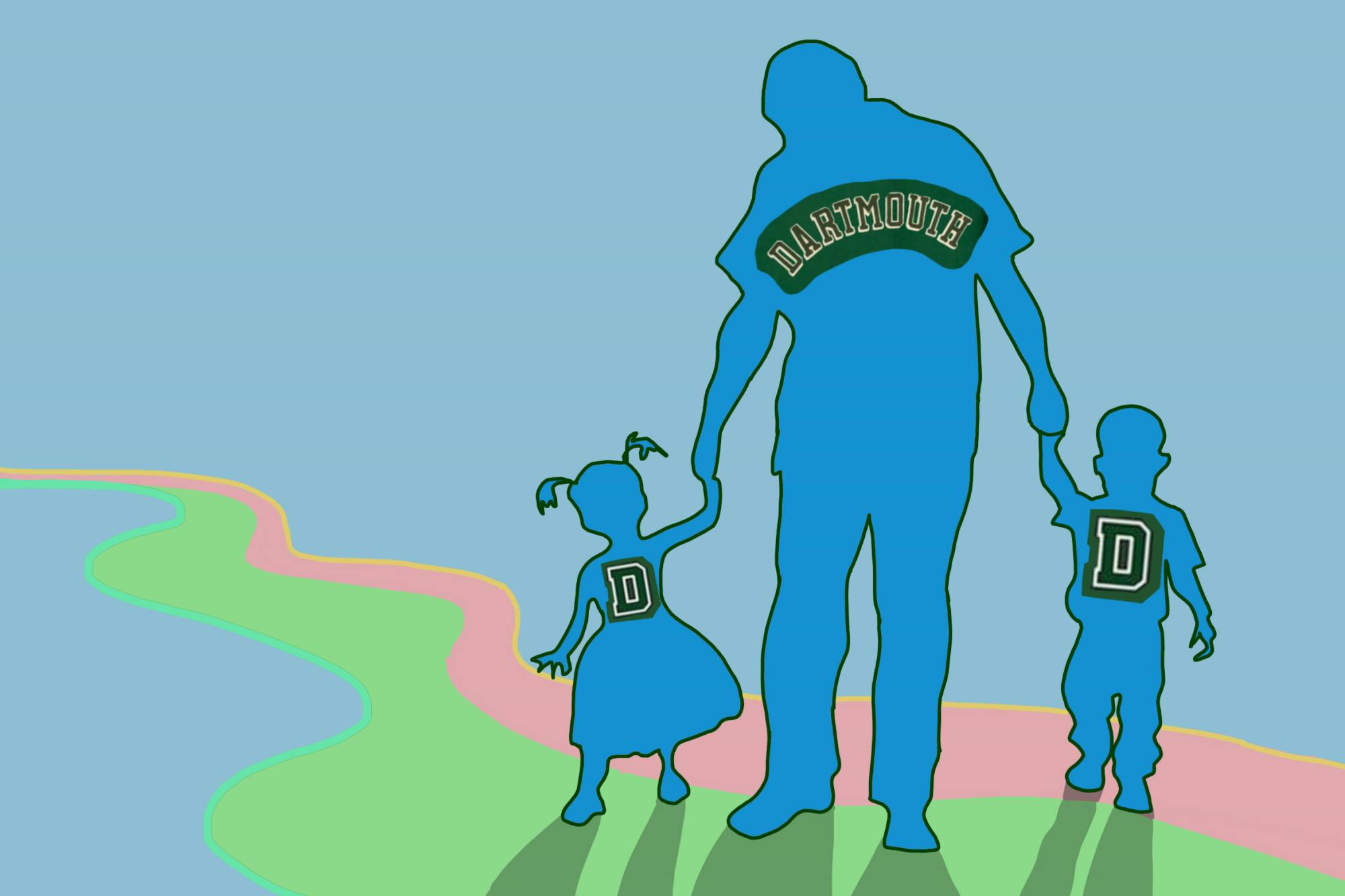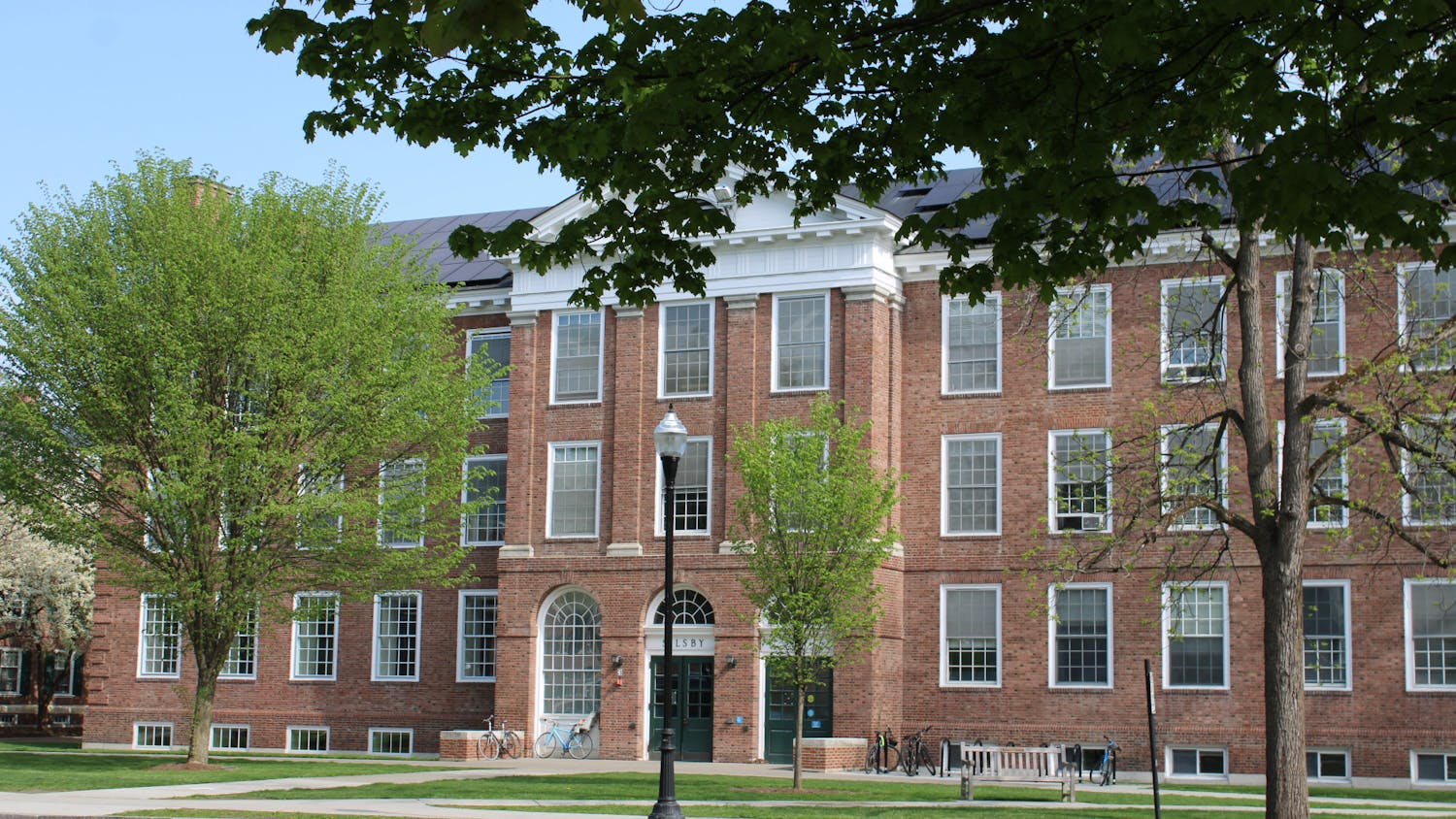I have only been at Dartmouth for six weeks, but I feel like I’ve been here my entire life — and not in a good way. Unfortunately, my parents went to Dartmouth. So did two of my grandfathers, two aunts and an uncle. If you cut me open, I’d probably bleed green. While my legacy status has its perks — for which I am incredibly grateful — I am always embarrassed to admit to the deep roots my family has in Hanover. It is not rare for someone to say “Oh, of course you got into Dartmouth! You’re a legacy legacy!”
I should’ve gone to Yale. Even though I didn’t like it as much, at least no one would attribute my acceptance to my last name. Maybe I’d feel like New Haven was mine, whereas Hanover feels like my parents’ territory. I’m not living in “Mid Fay,” I’m living in “Mid Fayer,” where my mom lived her junior year. I’m not taking Art History, I’m studying my dad’s major with his professors. Dartmouth isn’t mine. And how can it be when I’m merely mimicking my parents?
Bear with me through this identity crisis. I might not have a separate personality apart from my parents. I’m just a chip off the old block. After all, I’m at their school, walking down the same streets, eating at the same restaurants and studying in the same library. College is supposed to be a time for self-discovery and introspection, but instead of finding myself, I feel like I’m morphing into my parents.
The other day I found myself making a cup of tea while folding clothes and watching “The Great British Baking Show,” a favorite pastime of my parents’. Occasionally, I have the terrifying thought that I won’t be able to explore my identity because Dartmouth is not a fresh start for me. It’s a stepping stone on a preordained path to corporate America or graduate school. If I end up an oncologist or at the University of Virginia’s business school, then all hope will really be lost for legacies hoping to create an independent identity at their parents’ alma mater.
As if it isn’t hard enough to feel like a child playing dress up in my mother’s old L.L. Bean turtlenecks while hiking with my dad’s framepack and mess kit, I’m also coping with crushing pressure to perform perfectly. My entire extended family expects the best from me; God forbid I don’t walk out of Dartmouth an exact replica of them. But they never say this out loud. In fact, maybe they don’t even think it. I could just be projecting my debilitating perfectionism onto their expectations of me. After all, my mom never fails to remind me how poorly she did her freshman year.
Regardless of whether or not my parents are the ones putting this pressure on me, it is omnipresent and something I must deal with. The more I think about it, the more I am convinced that it’s less my family that I am trying to appease, and more the general population who recognize my legacy status. Although it shouldn’t matter what random people think of me, it does. Every time someone asks where I go to college and my parents jump in with an ever-enthusiastic “that’s where we went,” I can’t help but grow red in the face as I feel my worth diminishing in the eyes of this stranger.
Don’t get me wrong — I can hear how spoiled I sound. “Oh, boohoo, your family is well-connected and educated” is exactly what I imagine some of you are thinking at this moment. That is a completely valid reaction — I, too, chastise myself for complaining when I should be thankful for having these advantages in the first place. What is wrong with me? I shouldn’t have imposter syndrome, as I’ve been bred and raised to attend a prestigious institution. My family, private school education and socioeconomic status have prepared me for Dartmouth. I fit in. It makes sense. But those can’t be the only reasons I got in here. Right?
Obviously Dartmouth values legacy status and wants to keep their alumni happy, but they wouldn’t accept a total dud simply because of their connections — at least that’s what I tell myself to fall asleep at night. Even if they would accept someone solely based on their daddy’s money, that’s not me. I’m smart, capable and unique. I bring valuable attributes to this campus. I promise! So why do I feel the need to prove myself to the random Dartmouth alumna I bumped into in the Seattle Airport?
I’m always asking that question. Why? Why do I care when I know I shouldn’t? As long as I have confidence in myself, it shouldn’t matter what others think of me. But I can’t help but think that if I do well on my Art History midterm, if I hike Mount Moosilauke, if I join the newspaper and if I get an A in my Religion class, then maybe I will prove that I earned my spot here, or at least that I’m properly treasuring every moment. By pushing myself as hard as I can every single day, maybe people will realize that I’m not just a legacy, but someone who actually earned her place at Dartmouth and is making the most of everything such a wonderful school has to offer.
Again, I could be overthinking everything. I’m perpetually telling myself that it isn’t that deep and I’m only freaking myself out. No one really cares about my legacy status; my parents just want me to enjoy college, and I can choose to make Dartmouth my own rather than a relic from their past. I just need to reframe my mindset and all will be well. But sometimes, when the pressure is on and all paths seem pre-trodden, being a legacy isn’t all that it seems.




